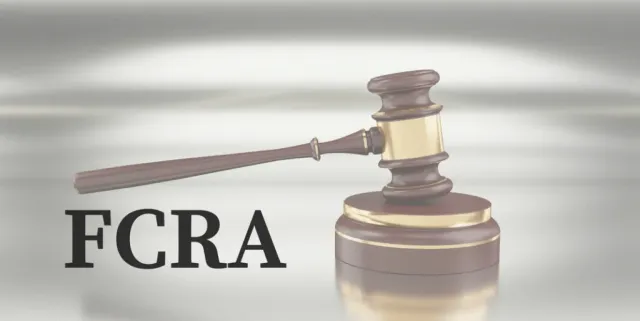Context:
Recently, the government announced that any NGO involved in anti-developmental activities and forced religious conversions will face cancellation of their registration under the Foreign Contribution (Regulation) Act (FCRA), 2010.
More on News:
A new notice was issued by the Director of the FCRA (2010).
Some key observations in the notice:
- Any NGO whose acceptance of foreign funding may affect social or religious harmony will face cancellation of its FCRA registration.
- If an NGO has diverted foreign contributions for carrying out anti-development activities or inciting malicious protests, linkage with terrorist organisations or anti-national/anti-radical organisations, their FCRA registration would be cancelled.
- If any field agency has reported adverse inputs against the NGO and its acceptance of foreign funding is likely to affect involved/induced forceful religious conversion, the organisation will also face action under the FCRA.
- If not utilising any foreign funding for projects as per the aims and objectives of the NGO, the NGO would also invite FCRA cancellation.
About Foreign Contribution (Regulation) Act (FCRA):
- It oversees foreign donations to prevent adverse impacts on internal security. It was enacted during the 1976 Emergency due to concerns about foreign interference.
- It is applicable to all NGOs, groups and associations that intend to receive foreign donations. It is mandatory for all NGOs that register themselves under the FCRA.
Need / Purpose of FCRA:
- It oversees and controls foreign donations, aiming to safeguard internal security.
- Ensuring operations of individuals and associations aligned with the principles of a sovereign democratic republic.
- To bring transparency and accountability in the utilization of foreign contributions.
- To prevent any undue influence on the political process in the country.
FCRA (Amendment) Rules, 2020:
- Public servants were included in the list of ‘persons’ who were prohibited from accepting any foreign contribution.
- The applicant must provide the Aadhaar number of all office directors, bearers or other important functionaries as a document for proper identification.
- In the case of foreigners, the applicants must provide a copy of their passport or Overseas Citizen Card for identification.
- Impose a blanket ban on the transfer of foreign contributions to any other person.
- Only 20% of the foreign contributions could be used for administrative expenses instead of 50%.
- It restricts the receipt of funds only in an account designated by the bank as an “FCRA account” in such branch of the State Bank of India, New Delhi, as notified by the Central Government and no other funds can be received or deposited in this account.
- It provided that foreign contributions received by an organization cannot be transferred to any other person or organization unless that person or organization is also registered to accept foreign contributions.
Suspension/cancellation of registration under FCRA:
- The government retains the authority to revoke FCRA registration for any NGO found violating the Act. The reasons for cancellation include the Central Government deeming it necessary for public interest.
- An NGO, once deregistered, is ineligible for re-registration for three years.
Concerns associated with FCRA:
- NGOs working on critical issues may face challenges in expressing dissent or advocating for sensitive causes.
- The fear of license suspension or cancellation creates a chilling effect on NGOs and leads to self-censorship, where organizations may avoid engaging in activities that could attract government scrutiny, even if those activities are within legal bounds.
- Strict rules may impede efforts to address and rectify human rights violations, hindering progress in this critical area.
- Government targeting of NGOs addressing environmental, civil liberties, and human rights issues indicates an effort to stifle voices on delicate subjects.
- Impacting India’s democratic image and standing in global freedom and democracy indices.
Way Forward:
- A separate law for voluntary agencies engaged in activities of charitable or public good nature to enable more effective and efficient regulation of the sector. (Vijay Kumar committee).
- Details of NGOs should be available as searchable database information (Vijay Kumar committee).
- The government should allow them grace periods for filing necessary documents instead of abruptly cancelling registrations for non-compliance.
- Establishment of NGO coordination centres for better and effective collaboration.

